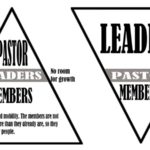 |
|
____________________________________________________
Tithes and Offering
Tithes
While we are no longer under any obligation to tithe, God still keeps His Word with those who covenant with Him in their tithes. We should tithe, not because we are supposed to, but rather because we want God’s protection and blessings. For those Christians who believe that God is a God who keeps His Word, tithing is a way to provide the Lord with the means to further bless and provide for that Christian who has the faith to take Him at His Word. His challenge to “test” Him still exists today, as it did in those days. Those believers who do take Him at His Word will be pleasantly surprised and blessed due to God’s faithfulness to His Word. God does not care that we are no longer under Levitical Law, He will keep His Word forever.
Malachi 3:8-12 (NASB) 8 “Will a man rob God? Yet you are robbing Me! But you say, ‘How have we robbed You?’ In tithes and offerings. 9 “You are cursed with a curse, for you are robbing Me, the whole nation of you! 10 “Bring the whole tithe into the storehouse, so that there may be food in My house, and test Me now in this,” says the LORD of hosts, “if I will not open for you the windows of heaven and pour out for you a blessing until it overflows. 11 “Then I will rebuke the devourer for you, so that it will not destroy the fruits of the ground; nor will your vine in the field cast its grapes,” says the LORD of hosts. 12 “All the nations will call you blessed, for you shall be a delightful land,” says the LORD of hosts.
Notice His 3 promises to those who will covenant with Him in their tithes.
- I will open for you the windows of heaven and pour out for you a blessing until it overflows.
-
- When God flooded the earth He did so by opening the “windows of heaven.”
- “In the six hundredth year of Noah’s life, in the second month, the seventeenth day of the month, the same day were all the fountains of the great deep broken up, and the windows of heaven were opened. And the rain was upon the earth forty days and forty nights.” (Genesis 7:11-12)
- The verse does not imply that some giant holes appeared in the sky and water came flooding from them.
- What it is saying is that God used His mighty heavenly power to cause something to happen on the earth.
- That is what He is promising to do for those who tithe, to use His mighty heavenly power to cause certain blessings to happen in your life.
- Then I will rebuke the devourer for you so that it will not destroy the fruits of the ground; nor will your vine in the field cast its grapes.
-
- In those days, people were farmers and shepherds and they depended on their crops and herds to survive and buy stuff.
- The more they harvested and grew, the more they were able to provide for their families.
- Any loss of crop or animal life meant a loss to them, so they could not afford for crop bugs and vicious animals to destroy what they had, nor for their harvests to go bad.
- God knows this, and He still knows this today.
The bugs and vicious animals today are more likely doctor’s bills for being sick, car problems, things breaking and/or wearing out too soon, and expenses that were unexpected, and for which we are unprepared.
-
- There are many things that can happen that can steal our money quickly and with ease, those are the plant bugs and vicious animals of today in our lives.
- As well, too many people make bad decisions with their money and they end up more in debt and with much less money in their pockets.
God’s promise for those who covenant with Him by tithing is that He will “rebuke the devourer for you.”
-
- The “devourer” today is the way we manage our money, our lack of knowledge, and our inability to change the things we cannot change.
- What God promises is that He will use His mighty heavenly power and helps us learn to use the powerful principles in His Word so that we will start to produce more and lose less money as we go along.
- Through the application of His Word (His mighty heavenly power), we will start to keep more of what we earn, spend less, and have more on hand, to use it in the way He wants for our benefit.
- All the nations will call you blessed, for you shall be a delightful land.
- As we start to take control of our expenses and manage our money better, people will notice.
- They will ask us what we are doing, and we can share the promises of God with them and encourage them to “test” God as well, with their tithes.
Offering
Malachi 3:8 (NASB) “Will a man rob God? Yet you are robbing Me! But you say, ‘How have we robbed You?’ In tithes and offerings.
Matthew 23:23 (NASB) “Woe to you, scribes and Pharisees, hypocrites! For you tithe mint and dill and cumin, and have neglected the weightier provisions of the law: justice and mercy and faithfulness; but these are the things you should have done without neglecting the others.
An offering is that which is freely given by Christians to the work of the Lord, the local church, and/or ministries and missions.
-
- But offerings are far more than simply the check we write on Sunday.
- We are to offer much more to God than our monetary resources.
- Romans 12:1exhorts us to offer our bodies “as living sacrifices, holy and pleasing to God” as part of our worship.
- Romans 6:13gives the reason for offering ourselves: because we are “those who have been brought from death to life,” and, as such, we are to “offer the parts of your body to him as instruments of righteousness.”
- God is not nearly as interested in our monetary offerings as He is in our submission and obedience.
- The truth is that He doesn’t need our resources to accomplish His plans and purposes.
- After all, He owns the cattle on a thousand hills (Psalm 50:10) and needs nothing from us.
- What He desires, however, and what He values, is the heart that overflows with gratitude and thanksgiving to the God who saved us and who gives us all things, knowing our needs before we even ask (Matthew 6:8).
- Such a heart gives generously, willingly, and cheerfully in response to the love and grace that abound in Christ (2 Corinthians 9:6–8).
While the tithe is paid at the church, as a “test” for God to show His mighty heavenly power, the “offering” is given at the local church for the work of the ministry. The offering is given by Christians who believe in the work of the ministry. It is given by those who support the work of their pastors and the local church in its outreach to the local community.
The offering comes in different forms.
-
- Money – given when the “offering” is collected.
- Time – personal time in ministry to others, serving in church, etc.
- Gifts and donations of property, clothing, and other practical things
- Support by financial and practical means (paying someone’s bills, helping them move, etc.)
- Investments in which the church is the beneficiary.
Offerings are always obvious; this means that they are something that others can see without having to be told about them.
- The offering is our way of showing God that He is in control of our lives, and therefore our money.
- The offering is our way of showing the world that we are His disciples.
- The offering is giving and giving…
- Giving makes us feel happy.
- Giving is good for our health.
- Giving promotes cooperation and social connection.
- Giving evokes gratitude.
- Giving is contagious.
___________________________________________________
One thing that we can always trust in is that when Jesus told a story, He would include in that story principles and rules which, if we apply them in our lives, we will see that they will happen as intended. Since He was the one telling the story about the “Talents,” where the “king” gave so many talents to each of his three servants, Jesus could have told that story in any way He wanted. He could have not included that part about putting money in the bank, but He did, and He did so on purpose. He knew we would be reading His Word someday, and He wanted us to learn from His words. He clearly believed that putting money in the bank (savings) is a good thing to do because it provides the opportunity to grow the money, no matter how little. Saving money was important to Jesus, or He wouldn’t have included that part in his story.
This idea is supported throughout the Bible. For example, let’s look at just a few verses.
Proverbs 13:11 – “… but whoever gathers little by little will increase it.”
The first part of that verse reads, “Wealth gained hastily will dwindle.” This seems to imply that money made through those “too-good-to-be-true” kinds of schemes, like the lottery and such, will end up a bad thing for most people. Why, because they don’t even know how to manage the money they have now. Getting more money won’t make them any smarter about money than they are now. But, money that is made slower, through carefully planned strategies, will result in the person learning how to manage their money better, learn to apply the financial principles from the Word of God, and learn to allow God to instruct them in how to use the money. This way, if they end up getting rich somehow, they will not easily lose all that money again.
Saving money is tough for many people because that means they have to divert money they could be spending right now to save for some future purpose. Future purposes can seem so far away, and those present desires and interests can be so strong because they are right there in front of us. Obeying God and saving money is one way for us to show others that God is our owner and master and that we are His property and servants.
Proverbs 13:22 – “A good man leaves an inheritance to his children’s children…”
1 Timothy 5:8 – “But if anyone does not provide for his own, and especially for those of his household, he has denied the faith and is worse than an unbeliever.”
Learning to save money is hard, but when you have the right motive for doing so it can become a bit easier. If we love our children, then the Bible teaches that we are to consider leaving money for our grandchildren as well. This can be done through saving money or buying life insurance and paying on it so that we can leave our offspring, and their children, some financial relief when we leave this earth.
1 Corinthians 16:1-2 – “Now concerning the collection for the saints, as I directed the churches of Galatia, so do you also. on the first day of every week, each one of you is to put aside and save, as he may prosper, so that no collections be made when I come.”
Along with being able to provide for those that we love, God also wants us to provide for the work of the ministry. One huge reason that God wants for you to prosper and make more money, is so that you will give more to His work. Those people who are ministers, many of them depend on the financial gifts, donations, and love offerings from God’s people. Many of them make little to no money for the work they do on God’s behalf. God wants us to make more money, to have more money so that we can give more money.
If you were one of those three servants whose king gave them so many talents so that they would earn him more money, what would you have done? Well, you are one of God’s servants, and He has given you some talents. Even if you don’t end up making millions for Him to use, at least obey the command that Jesus included in the story found in Matthew 25, “Then you ought to have put my money in the bank, and on my arrival, I would have received my money back with interest.” That money that is in your pocket, or in your checking account, that is His money, right?
1 Corinthians 6:19-20 (NASB), says “Or do you not know that your body is a temple of the Holy Spirit who is in you, whom you have from God, and that you are not your own? For you have been bought with a price: therefore, glorify God in your body.” If we were bought by God, then we belong to God. If we belong to God, then everything we have is His, right? So then, what does God want for you to do with His money? That’s right, put some of it in the bank to earn interest. Save, save, save.
___________________________________________________
As I have already said above, when Jesus includes something in one of the stories (parable and teachings) He tells in the Bible, He knows what He is saying and what choice of words He is using. In the same manner as before, when He included the words, “all who observe it begin to ridicule him.” He clearly intended that we should take His words as instructions for ourselves and our lives.
Of course, we would not want others to laugh at us for being so dumb as to start doing something without knowing what we are doing. That includes managing our money. If we do not know how to manage our money correctly, we should ask for help or find the answers one way or another. But, what is the proof that we do not know how to manage our money correctly? The answer is simple, “Are you debt free?” if the answer is “No,” then maybe you still have not fully learned how to manage your money the right way.
In the book of Habakkuk, in the second chapter, we find an interesting statement in verse 3, “Then the LORD said to me, “Write my answer plainly on tablets so that a runner can carry the correct message to others” (New Living Translation). There are many books and other materials for those who want to learn how to manage their money better. There are a plethora of books on budgeting. These days you can even find hundreds (if not thousands) of videos on budgeting on YouTube. Just Googling the word “budget” will get you many thousands of hits with all kinds of links about budgeting. There is no shortage of information available to people today. If someone truly wants to learn better ways to manage their money, the information is out there and easy to get. The only real question is, “Are you really ready to do whatever it takes, make whatever changes you must, to succeed?”
Managing your money successfully takes work, it will not be easy. But it can be done. So many people have already done it to prove that it can be done. And, the first step is a simple budget. What is a budget, you might be asking? Well here is an example.
You give a name to each dollar you earn. You make a list of each expense, and place an amount next to it that you will be limiting yourself to each month. You make adjustments as needed, but do not play loosely with those adjustments. After 2 or 3 months of adjustments and you should have a set amount next to each dollar that should not change unless something strongly compels the change. Some of the line items of your budget must be tithe, offering, and savings. Pay 10% to the tithe, 10% to your savings, and live on 80%. Then give an offering at the level at which you prosper.








